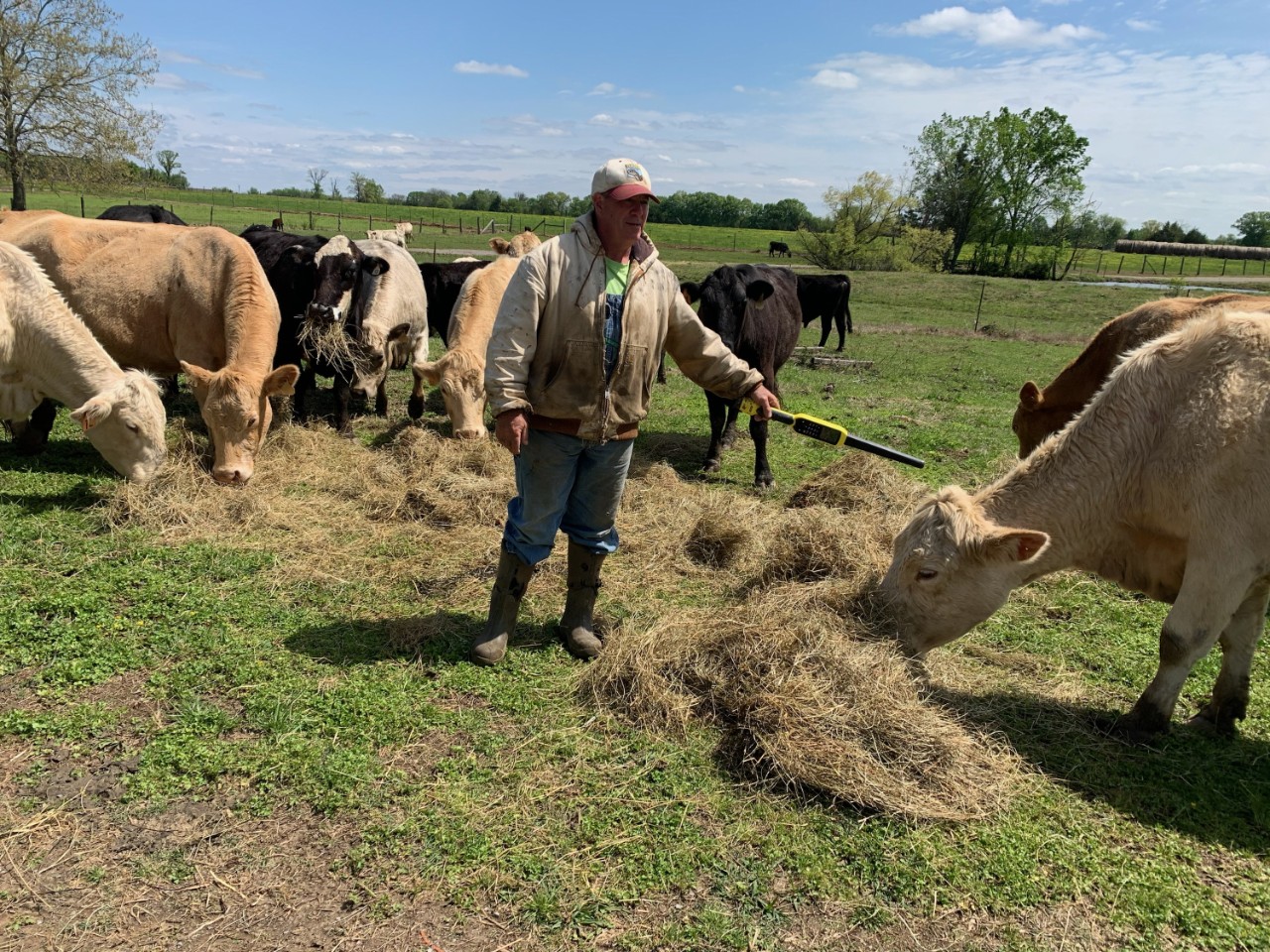Breaking Ground 102 - “A Will to Farm:” 150-Year Family Tradition Continues with TN AgrAbility
By Eileen Legault, TN AgrAbility Project, UT Extension Area Specialist and Jason Barber, Cattle Farmer
Those of us with sight might assume that farming depends on visual work. Unionville native Jason Barber is proving what is possible with limited sight. Using support and technology through Tennessee AgrAbility, Jason is continuing his family legacy of farming.
Tennessee AgrAbility is a USDA-funded project led by University of Tennessee (UT) and Tennessee State University (TSU) Extension. It is dedicated to improving the quality of life of farmers and agricultural workers with disabilities.
TN AgrAbility partnered with the TN Department of Human Services’ Division of Vocational Rehabilitation and its Tennessee Technology Access Program to provide the support and assistive technology Jason Barber needed to continue to work on his family farm. (Assistive Technology (AT) is any item, piece of equipment, or system used to help a person with a disability or long-term health condition to keep or improve functional abilities.)
A 150-Year Legacy at Risk
Jason Barber is a seventh-generation Unionville, Tenn. farmer who manages a 100-acre beef cattle and hay farm. The Barber family has been farming since 1866, and would not think of doing anything else.
In 1998, Jason was diagnosed with Retinitis Pigmentosa (RP), a chronic and degenerative eye condition. His RP progressed to the point of legal blindness, with tunnel vision and night blindness, by 2008.
Farming with a visual impairment is a unique situation for a farmer.
“I am grateful for my friends’ and family’s help,” Barber said. “Farming can change at any moment, and decisions must be made on the fly, and in seconds, sometimes. RP affects my day-to-day operations, but I have learned to make the best of it. If farming was easy, everyone would be doing it! I will continue farming as long as I safely can.”
Jason and his siblings are caregivers for Gale, his 75-year-old dad, who has Parkinson’s and dementia. Gale is Jason’s eyes and hands. Some days are more challenging, but they make a great team.
Gale has feared that as the years pass, he will become less able to help Jason. “It puts my mind at ease, knowing that the State of Tennessee is pitching in to help my son keep farming and keep the family tradition going,” Gale said.
Powerful Partnerships
Jason says fate intervened when Jessica Barber, his sister-in-law who lives in Knoxville, met Eileen Legault, an AgrAbility specialist. Jessica asked if AgrAbility worked with farmers with disabilities across Tennessee. Eileen explained that yes, Extension offices are in all 95 counties.
Members of the TN AgrAbility team visited Jason to assess his farm, make recommendations, explain services, and find assistive technology solutions. The team’s recommendations built on the work Jason had done over the years to adapt his facilities so he could work by feel and memory.
Jason skillfully walks around the farm without help, and “sees” things others overlook. He says his other senses are very alert now. Jason voluntarily stopped driving in 2008, when he knew his vision was decreasing. His biggest mobility challenge is depending on others to drive him.
The technology team focused on making use of his remaining vision to help Jason with everyday life. Their recommended solutions included a digital wand to help Jason tag and identify the cattle, and cattle chutes and gate options to help him navigate without being able to see contrasting colors.
AgrAbility saw the chance for more partnerships to fully support the Barber farming legacy. To help Jason pay for the assistive technology he needed, Eileen Legault referred him to the Division of Vocational Rehabilitation’s Blind and Visually Impaired Services.
Vocational Rehabilitation funded an iPad and the recommended digital cattle wand, called an “Electronic Identification Tru-Test Stick Reader.” The wand helps Jason “see” the cattle tags. It uses Bluetooth® wireless technology to share information to smart devices.
The OrCam MyEye 2, also funded by Vocational Rehabilitation, allows Jason to turn visual information (like text, faces, products, and colors) into audio information. This has obvious benefits for increased independence and farming tasks, like reading the labels on animal medicines.
For an updated record-keeping system, Eileen referred Jason to Kevin Ferguson, Extension Area Specialist in Farm Management with the UT MANAGE Program.
Meredith Bailey with STAR Center and Tara Janssen, an Occupational Therapist, also worked together to help Jason continue farming safely. STAR Center recommended ZoomText to magnify and read everything on his computer screen. Access to the computer helps Jason with his farming business tasks, such as working with Excel spreadsheets and databases, and YouTube research.
A Will to Farm
Jason loves technology and continues to learn new features. He spends time online, researching ways to help himself and other farmers. In fact, he has been in communication with Tru-Test developers in New Zealand, in hopes they will add more features to their digital wand to aid low-vision and aging farmers.
We can’t wait to see what new solutions Jason finds. He is a living reminder of the farmer’s saying: “Where there is a will to farm, there is a way.”
Contact TN AgrAbility for more information: AgrAbility@tennessee.edu or 865-200-4527. Visit www.agrability.org and follow us @TNAgrAbility on Facebook.